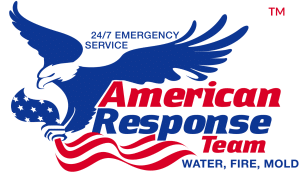Water damage can cause significant destruction to your property, whether it is from a leaky pipe, a natural disaster, or any other source. It can damage your furniture, carpeting, and even structural integrity if not handled promptly and properly. Therefore, understanding the different types of water damage is crucial to deal with the problem effectively. In this article, we will explain the various types of water damage, their causes, and the necessary steps you should take to prevent and mitigate them.
Types of Water Damage
Clean Water Damage
Clean water damage is the least harmful type of water damage. It occurs when the water comes from a clean source such as a broken pipe, a leaking faucet, or a malfunctioning appliance. This type of water damage is not harmful to humans or animals and can be easily cleaned up. However, if left untreated, clean water can turn into greywater or black water, which can cause severe health hazards.
Greywater Damage
Greywater damage is the result of water from sources such as washing machines, dishwashers, and showers. It is slightly contaminated with substances like soap, dirt, and other materials. Exposure to greywater can cause skin irritation, infections, and other health problems. If not addressed promptly, greywater can turn into black water, which can cause severe health issues.
Black Water Damage
Black water damage is the most severe type of water damage. It is caused by sewage backups, flooding, and other natural disasters. Black water contains dangerous pathogens and contaminants that can cause severe health problems such as gastrointestinal issues, respiratory problems, and infections. Black water damage requires immediate and professional attention to avoid severe health consequences.
Causes of Water Damage
Water damage can occur due to various reasons, including:
- Natural disasters such as floods, hurricanes, and storms
- Leaking pipes and faucets
- Malfunctioning appliances such as washing machines, dishwashers, and refrigerators
- Clogged gutters and downspouts
- Sewage backups and overflows
- Humidity and condensation
- Poor ventilation and insulation
Preventing Water Damage
Preventing water damage is the most effective way to avoid costly repairs and health problems. Here are some tips to prevent water damage:
- Regularly inspect and maintain appliances, pipes, and faucets
- Clean gutters and downspouts regularly
- Install and maintain sump pumps and backwater valves
- Fix leaks and plumbing issues promptly
- Ensure proper ventilation and insulation
- Keep valuables and electronics away from potential water damage areas
Mitigating Water Damage
If you experience water damage, it is crucial to take immediate action to minimize the damage and prevent health hazards. Here are the necessary steps to mitigate water damage:
- Turn off the water source
- Disconnect electrical devices
- Remove furniture and other belongings from the affected area
- Extract the water using a wet vacuum or pump
- Use fans and dehumidifiers to dry the area
- Disinfect and sanitize the area to prevent health hazards
- Contact a professional restoration company to handle severe damage
Conclusion
Water damage is a significant problem that can cause severe damage to your property and health. Understanding the different types of water damage, their causes, and the necessary steps to prevent and mitigate them is crucial to handle the problem effectively. By following the prevention tips and taking prompt action in case of water damage, you can avoid costly repairs and health problems.


